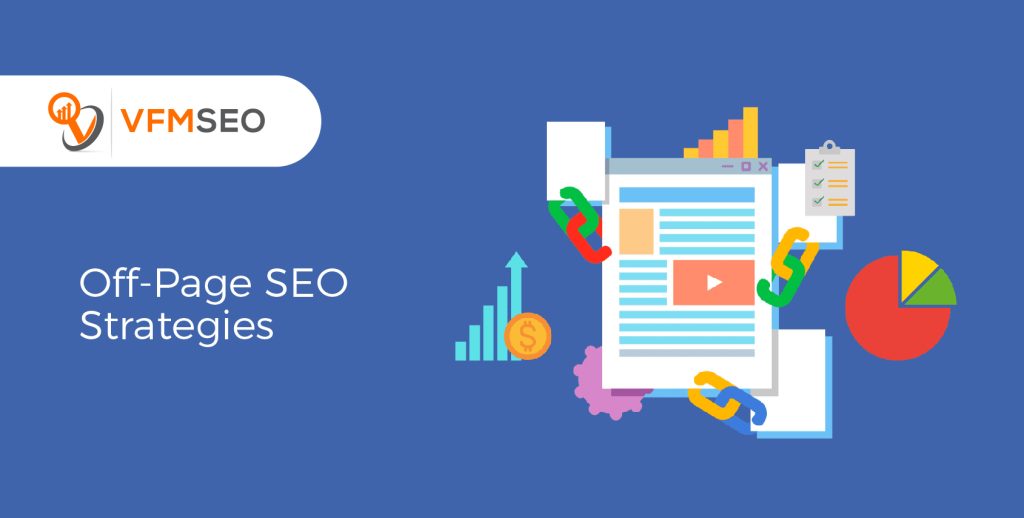
Customized SEO Services: Tailored Strategies for Online Success
In today’s highly competitive online landscape, businesses are increasingly recognizing the importance of Search Engine Optimization (SEO) in establishing their digital presence.
However, the one-size-fits-all approach to SEO may not always yield the desired results. This is where customized SEO services come into play.
Customized SEO services are tailored to meet the unique needs and objectives of individual businesses, ensuring that their online presence is optimized for maximum visibility and organic traffic. By understanding the specific requirements and goals of a business, customized SEO services can effectively target the right audience, increase brand visibility, and drive qualified leads.
This article delves into the various components of customized SEO services, including conducting a website audit, keyword research and analysis, on-page optimization, and off-page SEO strategies. By implementing these personalized strategies, businesses can enhance their online visibility and stay ahead in the fiercely competitive digital landscape.
Understanding Your Business Needs

The comprehension of a company’s specific requirements is essential in providing effective and tailored SEO services. To begin with, identifying the target audience is a crucial factor in developing a successful SEO strategy. By understanding the demographics, interests, and behaviors of the target audience, SEO experts can optimize the website to attract and engage the right visitors. This involves conducting thorough market research and using analytics tools to gather data on user behavior and preferences.
Another important aspect of understanding a company’s business needs is conducting competitor analysis. This involves researching and analyzing the strategies used by competitors in the same industry. By identifying their strengths and weaknesses, SEO professionals can develop strategies that give their clients a competitive edge. This may include evaluating competitor keywords, backlink profiles, and content strategies, among other factors.
Additionally, content strategy planning plays a vital role in optimizing a website for search engines. This involves creating high-quality, relevant, and keyword-rich content that resonates with the target audience. By understanding the company’s unique selling points and value proposition, SEO experts can develop content that not only attracts visitors but also encourages them to take desired actions.
Local SEO optimization is another critical component of customized SEO services. This involves optimizing the website to rank higher in local search results, particularly for businesses that rely on local customers. Geographically relevant keywords, local directory listings, and Google My Business optimization are some strategies employed to improve local visibility.
Conversion rate optimization focuses on improving the rate at which website visitors convert into customers or take desired actions. By analyzing user behavior, optimizing landing pages, and implementing persuasive call-to-actions, SEO professionals can enhance the website’s conversion potential.
Conducting a Website Audit

Conducting a website audit involves analyzing and evaluating various aspects of a website to identify areas for improvement and optimization. This process is crucial in determining the website’s performance, identifying technical issues, assessing content quality, enhancing user experience, and conducting competitor analysis.
Website performance is a critical aspect of a successful online presence. During a website audit, the performance of a website is evaluated by assessing its loading speed, responsiveness, and overall functionality. This analysis helps identify any bottlenecks and areas that need improvement to enhance the user experience.
Technical issues are another key focus during a website audit. These issues can include broken links, duplicate content, missing meta tags, or other coding errors. Identifying and rectifying these technical issues is vital as they can affect a website’s visibility in search engine results and impact its overall performance.
Content quality is an essential factor in attracting and engaging website visitors. A website audit involves evaluating the content for relevance, accuracy, uniqueness, and readability. This assessment helps identify areas where the content can be improved to better align with the target audience’s needs and preferences.
The user experience is a crucial aspect of website optimization. During a website audit, the ease of navigation, accessibility, and overall user-friendliness are evaluated. This analysis helps identify any barriers that may hinder a positive user experience and allows for necessary adjustments to improve satisfaction and engagement.
Competitor analysis is an integral part of a website audit. By assessing competitor websites, businesses can gain insights into industry trends, identify areas where they can differentiate themselves, and implement strategies to stay ahead of the competition. This analysis helps businesses understand the competitive landscape and make informed decisions to optimize their website’s performance and attract more traffic.
Keyword Research and Analysis
Keyword research and analysis is an essential step in optimizing a website’s content and improving its visibility in search engine results. By conducting thorough keyword research, website owners can identify the most relevant and valuable keywords to target in their content, which can increase their chances of ranking higher in search engine results pages (SERPs).
Competitor analysis is a crucial component of keyword research. By examining the keywords that competitors are targeting, website owners can gain insights into the keywords that are driving traffic and conversions for their competitors. This information can help them identify opportunities and develop strategies to outperform their competitors.
Long tail keywords are another important aspect of keyword research. These are longer and more specific keyword phrases that have lower search volumes but often have higher conversion rates. By targeting long tail keywords, website owners can attract more qualified traffic to their site and increase their chances of converting visitors into customers.
Search volume analysis is also a key part of keyword research. It involves determining the average number of times a keyword is searched for in a given period. This information can help website owners prioritize their keyword targeting efforts and focus on keywords with higher search volumes.
Keyword difficulty analysis is another crucial step in keyword research. It involves assessing the level of competition for a particular keyword. By analyzing keyword difficulty, website owners can identify keywords that are less competitive and have higher chances of ranking well in SERPs.
Lastly, local keyword targeting is essential for businesses that operate in a specific geographic location. By incorporating location-specific keywords into their content, website owners can improve their visibility in local search results and attract more relevant traffic.
On-Page Optimization
Maximizing the effectiveness of website content requires a strategic approach known as on-page optimization, which focuses on improving various elements of a webpage to enhance its visibility and relevance in search engine results.
On-page optimization involves several key components, including:
- Content creation: High-quality and relevant content attracts readers and helps search engines understand the webpage’s purpose and relevance to specific search queries. Conducting thorough keyword research can identify the most appropriate keywords to incorporate into the content, increasing its visibility in search engine rankings.
- Meta tags: These HTML elements provide information about a webpage to search engines. The title tag displays the webpage’s title in search engine results, and the meta description tag provides a brief summary of the content. Optimizing these tags with relevant keywords and compelling descriptions can increase click-through rates and improve visibility in search engine rankings.
- URL structure: A well-structured URL that includes relevant keywords enhances a webpage’s visibility in search engine results. Descriptive and user-friendly URLs are more likely to be clicked on by users, increasing overall traffic to the webpage.
- Internal linking: This practice involves linking to other pages within the same website. It helps users navigate the website and assists search engines in understanding the website’s structure and relevance. By strategically incorporating internal links with relevant anchor text, website owners can improve the webpage’s visibility and search engine rankings.
- Image optimization: This involves optimizing images on a webpage to improve loading speed and accessibility. It includes compressing images to reduce file size, adding relevant alt text, and ensuring proper formatting. Optimized images enhance the user experience and contribute to a webpage’s relevance and visibility in search engine rankings.
Off-Page SEO Strategies

Off-Page SEO Strategies play a crucial role in enhancing a website’s visibility and authority in search engine rankings, ultimately leading to increased organic traffic and improved online reputation.
One of the key elements of off-page optimization is link building. This involves acquiring high-quality backlinks from reputable websites, which signals to search engines that the website is trustworthy and relevant. Link building can be achieved through various methods such as guest blogging, directory submissions, and influencer outreach.
Another important off-page SEO strategy is social media marketing. This involves creating and sharing engaging content on social media platforms to attract and engage with the target audience. Social media signals, such as likes, shares, and comments, can contribute to improving a website’s visibility in search engine results.
Content marketing is also a significant off-page SEO strategy. By creating and distributing relevant and valuable content, a website can attract inbound links and establish itself as an authoritative source in its industry.
Influencer outreach is another effective off-page SEO strategy. By collaborating with influential individuals in a particular niche, a website can gain exposure to a wider audience and acquire valuable backlinks. Influencers can share content, mention the website in their posts, or even endorse the brand, which can significantly boost a website’s visibility and credibility.
Lastly, online reputation management is crucial for off-page SEO. Maintaining a positive online reputation through customer reviews, testimonials, and addressing any negative feedback is essential for attracting organic traffic and building trust with potential customers.
FAQs
How long does it take to see results from customized SEO services?
The timeline for seeing results from customized SEO services can vary depending on various factors. Measuring effectiveness involves tracking the success of these services, while understanding the variables that impact results helps manage expectations. Case studies provide real-life examples of businesses that have experienced significant improvements. Patience is crucial in recognizing that noticeable results may take time.
Can SEO services guarantee a certain ranking on search engines?
SEO services cannot guarantee a specific ranking on search engines due to various factors affecting search engine rankings. The effectiveness of SEO services depends on keyword research, backlinks, and the comparison of SEO with paid advertising for improving website visibility.
What are the costs associated with customized SEO services?
Pricing factors, ROI of customized SEO, and factors influencing SEO costs vary when considering SEO services. A comparison of SEO service prices can assist in budgeting for customized SEO, taking into account the specific needs and goals of a business.
How often should SEO strategies be adjusted or updated?
Regular updates to SEO strategies offer several benefits, including improved website visibility, increased organic traffic, and better search engine rankings. Best practices for adjusting these strategies involve analyzing key indicators, such as changes in search algorithms and competitor activities. Case studies and expert opinions inform the optimal frequency of updating SEO strategies.
Do customized SEO services include social media management and promotion?
Social media advertising, content marketing, keyword research, website optimization, and link building are all important aspects of effective SEO strategies.
Conclusion
In conclusion, customized SEO services play a crucial role in improving a business’s online presence and visibility.
By understanding the unique needs of the business, conducting a thorough website audit, and implementing effective keyword research and analysis, businesses can optimize their webpages for search engines.
On-page optimization techniques and off-page SEO strategies further enhance the website’s ranking and attract more organic traffic.
By utilizing these tailored SEO services, businesses can achieve their digital marketing goals and stay ahead of the competition in the online world.

